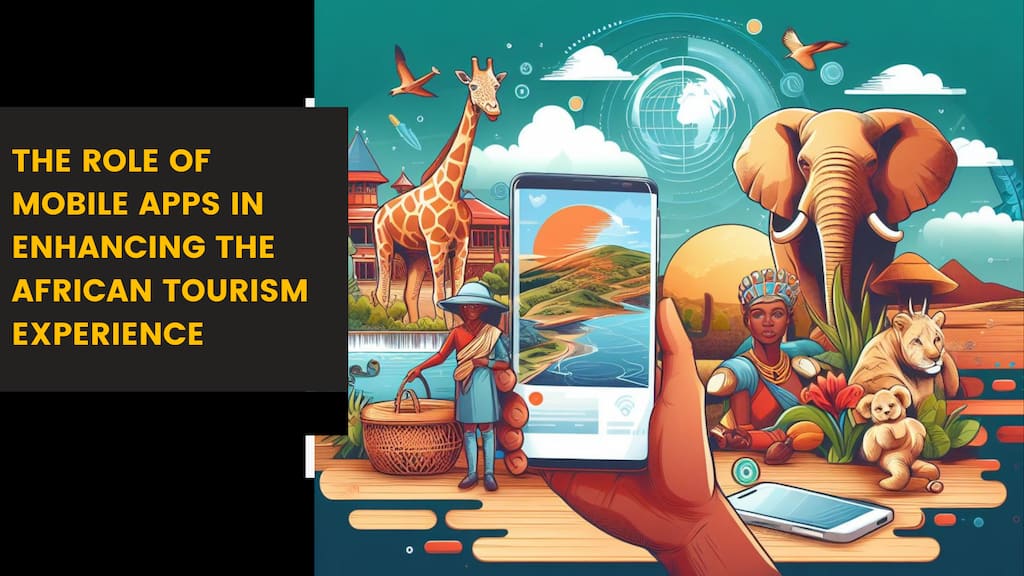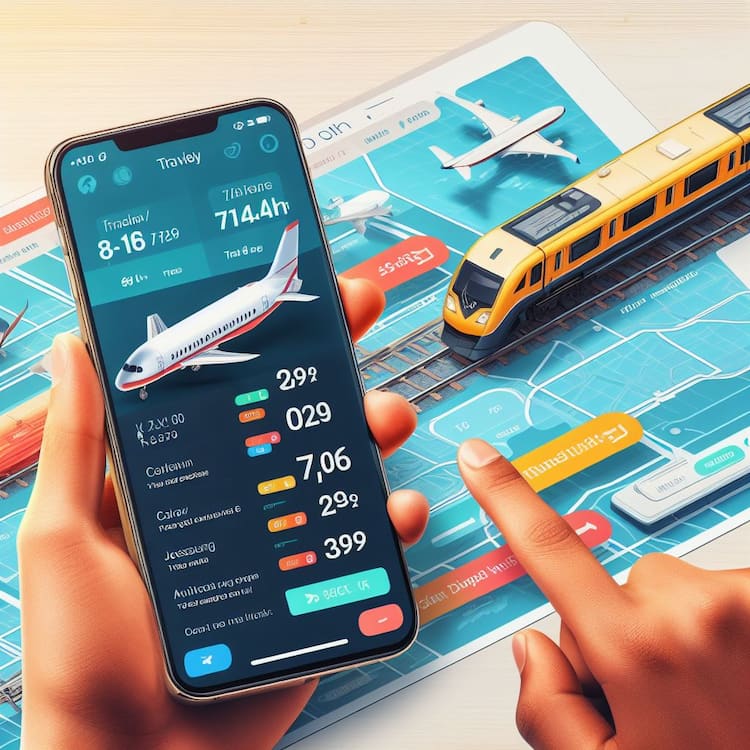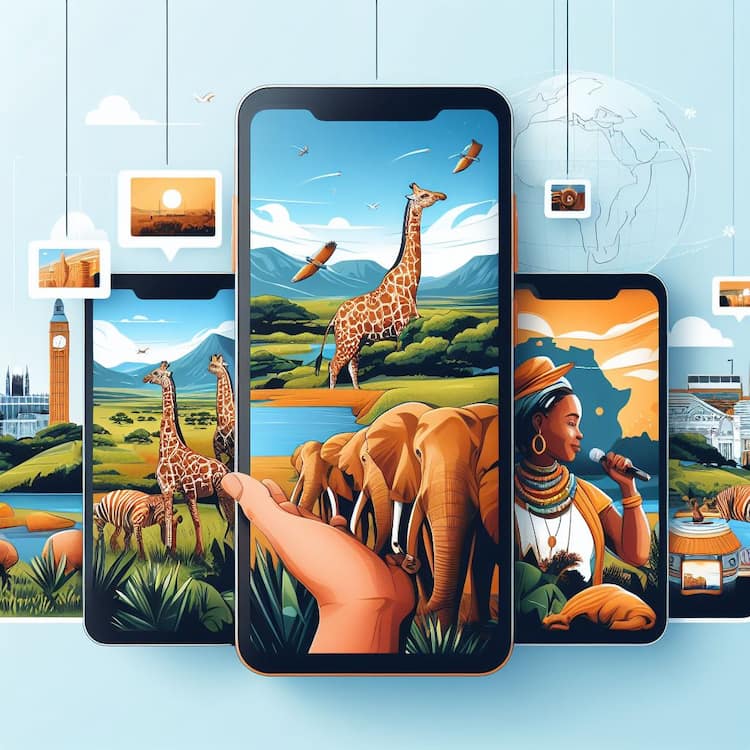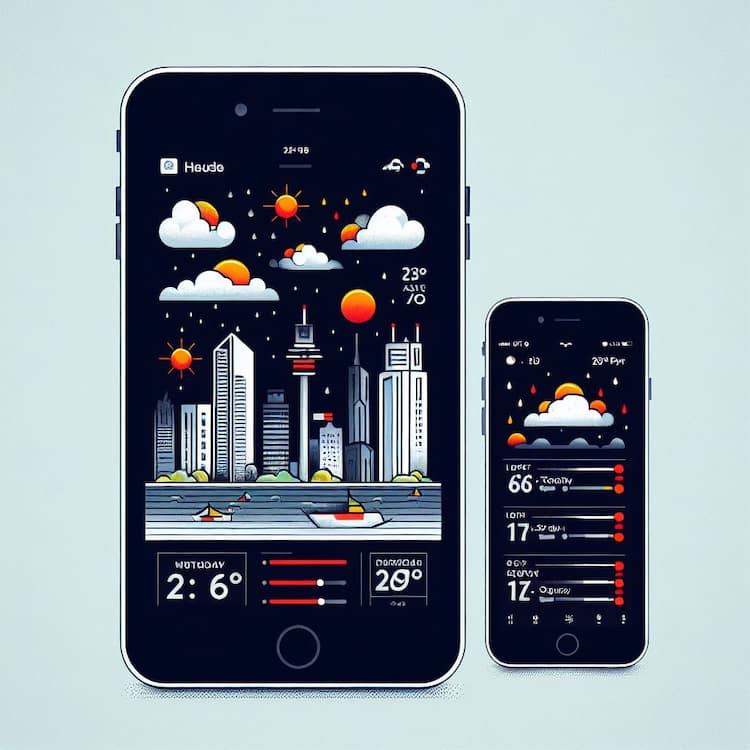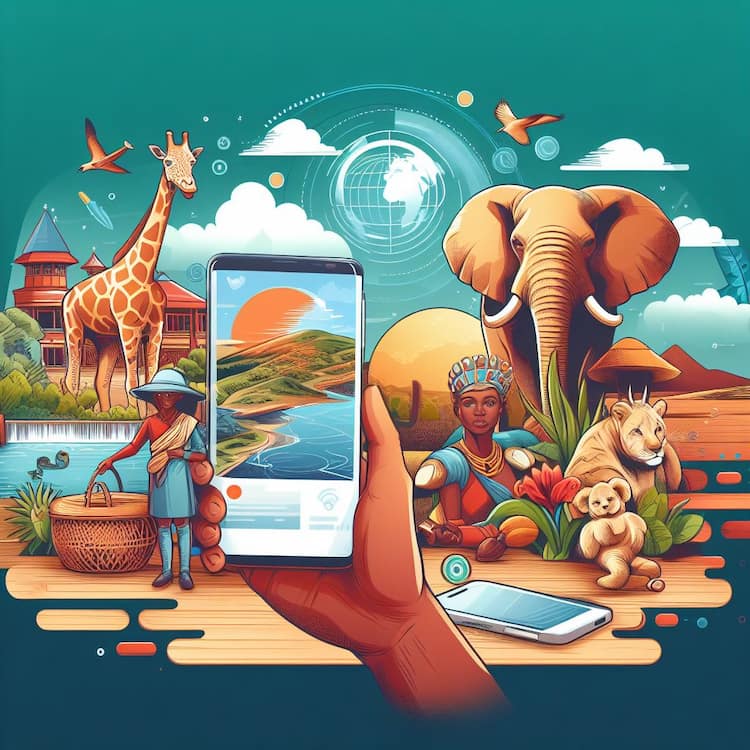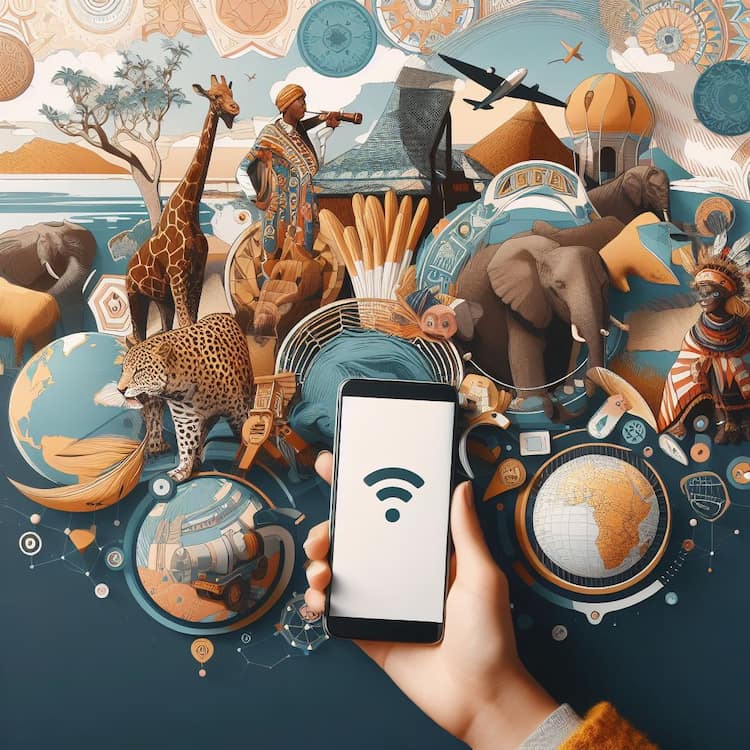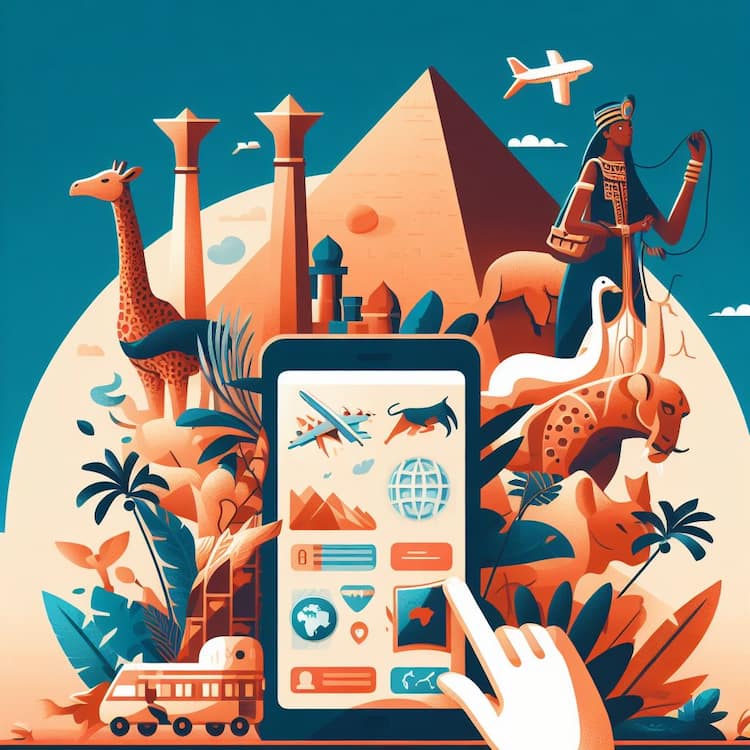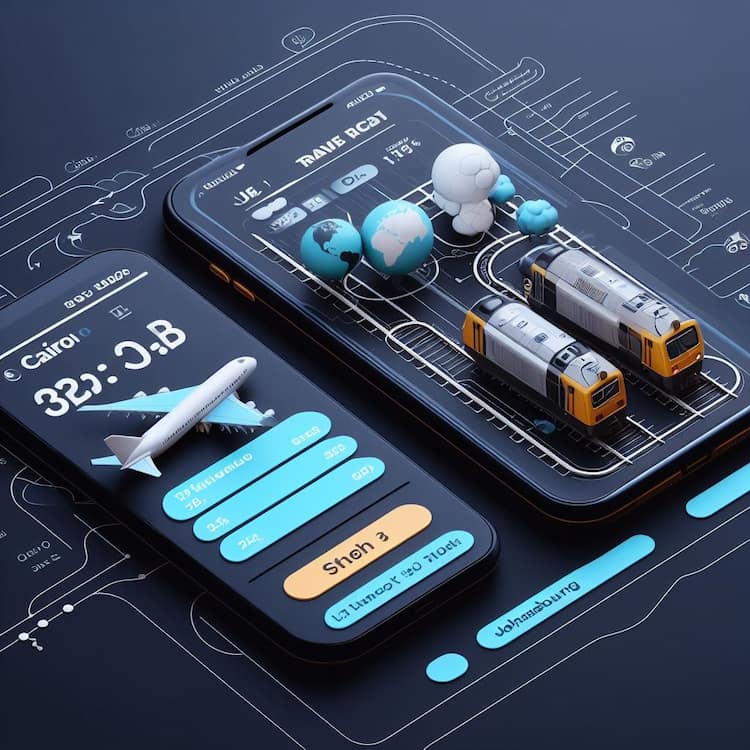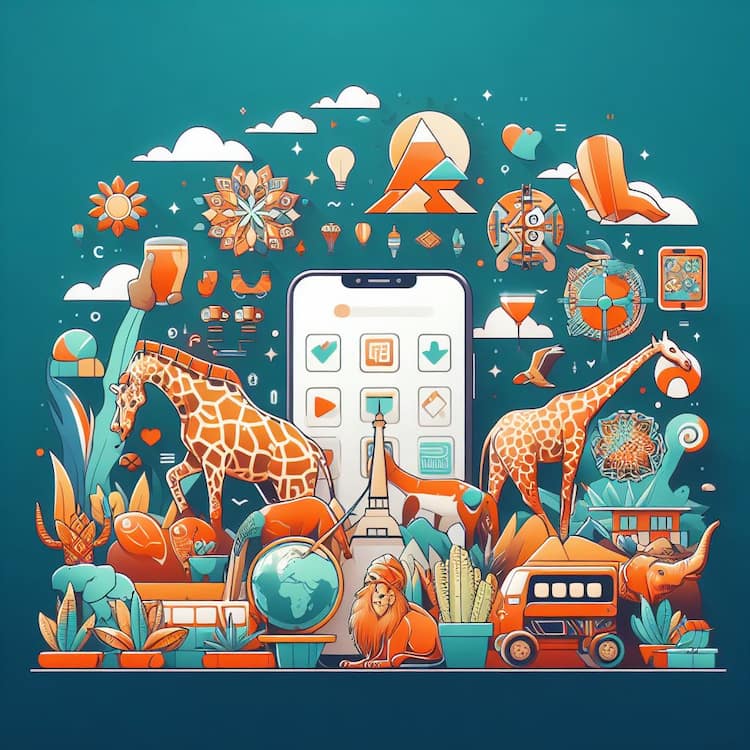By Anniey Mwangi
Ladies and gentlemen, tourists and explorers, digital enthusiasts and culture seekers, we extend a warm and enthusiastic welcome to this exciting exploration of mobile apps and their role in making your African travel experiences truly unforgettable.
Africa, a continent of breathtaking landscapes, diverse cultures, and rich history, has long been a coveted destination for travellers seeking unique and enriching experiences. With the rise of technology, particularly mobile apps, the African tourism industry is undergoing a transformative journey.
These digital tools are shaping how tourists explore, connect, and immerse themselves in the continent’s treasures, making the African tourism experience more accessible and engaging than ever before.
A Digital Revolution in African Tourism
The African tourism sector has experienced significant growth in recent years, with travellers seeking everything from wildlife safaris in Kenya to cultural explorations in Morocco and beach getaways in Seychelles and Zanzibar. However, the advancement of mobile technology is taking this growth to new heights.
Here are some key ways in which mobile apps are enhancing the African tourism experience:
- Access to Information: Mobile apps are powerful sources of information for travellers. From comprehensive guides to specific destinations to real-time weather updates, tourists can access a wealth of data at their fingertips. Apps like TripAdvisor and Lonely Planet provide insights into accommodation, dining, attractions, and local customs, helping travellers make informed decisions.
- Navigation and Maps: Getting around in unfamiliar territory can be challenging, but mobile apps with GPS capabilities and detailed maps simplify the process. Apps like Google Maps and Maps.Me offer turn-by-turn directions, public transportation information, and even offline maps, ensuring that tourists can explore with confidence.
- Language Assistance: Africa’s linguistic diversity is one of its unique features, but it can also pose communication challenges for tourists. Language translation apps, such as Google Translate, help bridge this gap, making it easier for travellers to interact with locals and understand signage and menus.
- Booking and Reservations: The convenience of booking accommodations, flights, and tours through mobile apps has revolutionized travel. Platforms like Booking.com and Airbnb make it simple to find and secure lodging, while airlines’ apps facilitate ticket reservations and check-in processes.
- Local Insights: Mobile apps often provide valuable insights from local experts and fellow travellers. Platforms like TripAdvisor and Yelp allow users to leave reviews and recommendations, offering first-hand accounts of their experiences and helping others make the most of their trips.
- Cultural and Historical Exploration: African history and culture are exceptionally rich, and mobile apps dedicated to these subjects enhance travellers’ understanding. Apps like African Heritage Guide and Culture Trip provide immersive experiences, from virtual museum tours to detailed historical context.
- Wildlife Encounters: For those embarking on safaris and wildlife adventures, apps like iNaturalist and eBird enable travellers to identify and document flora and fauna. These apps not only enhance the safari experience but also contribute to conservation efforts by collecting valuable data.
- Safety and Emergency Assistance: Safety is paramount while traveling. Mobile apps offer tools like emergency numbers, first-aid guides, and real-time updates on local security situations. This information can be indispensable in times of need.
Case Study: The Magic of Mobile Apps in South Africa
South Africa, known for its stunning landscapes, diverse wildlife, and vibrant cities, has been at the forefront of embracing mobile technology to enhance tourism.
The “South Africa Tourism” app, for example, offers a treasure trove of features. Tourists can access information on popular destinations, accommodations, activities, and travel tips. The app also provides a “Near Me” feature, which uses location services to suggest nearby attractions and services, ensuring that travellers can make the most of their time in the country.
Moreover, South Africa’s national parks have implemented mobile apps to enrich the safari experience. The SANParks Mobile App assists visitors in identifying wildlife and birds, locating rest camps, and even booking accommodations and activities within the parks.
Challenges and Opportunities for Mobile Apps in African Tourism
While mobile apps have revolutionized the African tourism landscape, there are challenges that need to be addressed:
- Connectivity: Access to mobile data and reliable internet can be inconsistent in some parts of Africa. App developers must consider the limitations of connectivity and offer offline capabilities when possible.
- Local Engagement: Engaging with local communities and businesses is essential to ensure that app content is accurate and respectful of cultural sensitivities.
- Sustainability: To minimize the environmental impact, mobile apps can promote sustainable tourism practices and responsible travel choices.
- Security: Ensuring the security of personal and financial data on tourism apps is crucial. Robust encryption and data protection measures are imperative.
The Future of Mobile Apps in African Tourism
As technology continues to advance, the future of mobile apps in African tourism holds promise. Here are some exciting prospects:
- Augmented Reality (AR): AR apps can offer travellers immersive experiences, such as historical reconstructions at heritage sites or virtual wildlife encounters in national parks.
- Blockchain Technology: The use of blockchain in travel apps can provide secure, transparent, and efficient transactions for bookings and payments.
- Personalized Recommendations: Mobile apps will increasingly leverage artificial intelligence to provide travellers with highly personalized recommendations and itineraries tailored to their interests.
- Environmental Impact Tracking: Apps may incorporate tools to help travelers monitor and reduce their environmental footprint, supporting sustainable tourism practices.
Conclusion
Mobile apps have become indispensable tools for enhancing the African tourism experience. These digital companions offer information, navigation, language assistance, and opportunities for cultural and historical exploration. The future promises even more exciting developments, ensuring that travelers can continue to immerse themselves in the beauty and diversity of the African continent with ease, confidence, and respect for the environment and local cultures. Africa is not just a destination; it’s an experience, and mobile apps are making that experience more enriching than ever before.
